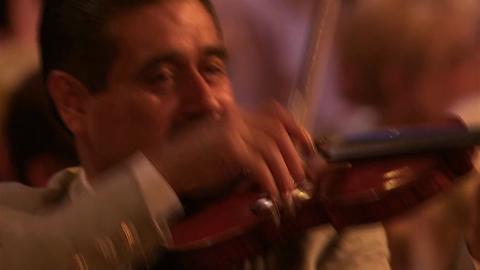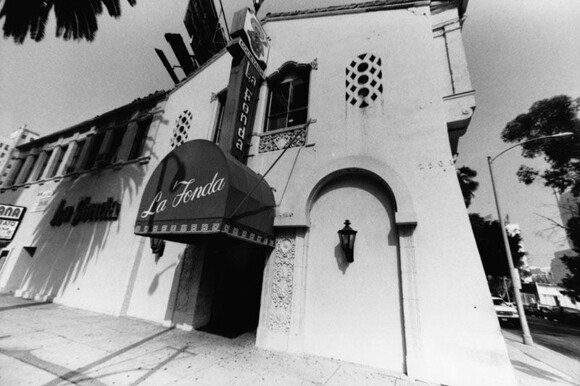
La Fonda Restaurant
This exclusive web extra features a performance by Nati Cano's iconic mariachi group Los Camperos playing a medley of classic mariachi tunes.
Nati Cano Founds La Fonda Restaurant
In 1957, Nati Cano moved his group Mariachi Chapala from Mexicali to Los Angeles where he was eventually offered a position at the Million Dollar Theater, the epicenter of Latino music and a cultural hotspot in the landscape of postwar Los Angeles. With the backing of owner Frank Fouce, Nati became the director of the house mariachi band and began sprucing up the mariachi image by springing for flashy new uniforms.
But the Million Dollar Theater, like most venues, saw mariachi groups only as backing bands for more famous solo artists. While this proved a step up from performing al talon (which means "shoe heel" and refers to when Mariachis walk from table to table), Nati became increasingly frustrated with how the band was disrespected by visiting singers. After an encounter onstage withFrancisco "Charro" Avitia where he disrespected the band in front of a live audience, and an incident in Lubbock, Texas where Nati was refused entrance to a restaurant because of his Mexican heritage, Nati made a momentous decision that would profoundly alter the world of mariachi music.
In 1967, Nati left the Million Dollar Theater and formed Mariachi Los Camperos and in 1969 he opened the now legendary La Fonda Restaurant. With this move, Nati began a lifelong quest to elevate mariachi music as both a musical form and as an expression of Mexican identity.
The first step on the road to broader recognition for mariachi music began with a seemingly small change: rather than play at customer's tables for tips, Nati moved the mariachis onstage and removed any solo vocalist, in effect establishing the mariachis as the stars of the show. He also introduced color and vibrancy to the mariachi uniforms, experimented with stage choreography, and rigidly enforced a discipline to the group by requiring three to fours hours of rehearsal each day.

The model was enthusiastically embraced by Angelenos and was replicated around southern California. La Fonda became a destination for families, tourists, and music lovers of all stripes. But this was only the beginning of Nati Cano and Los Camperos' illustrious career.






